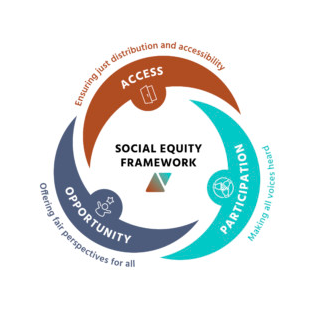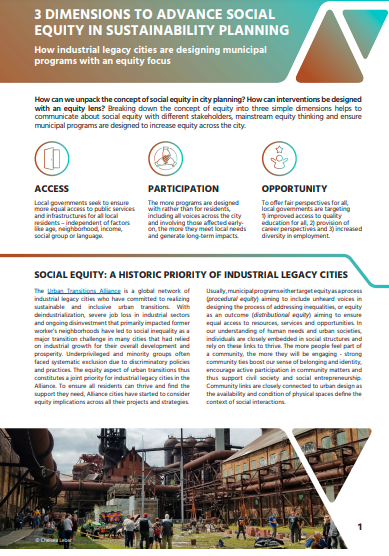Industrial Legacy Hub
Empowering cities with an industrial legacy across the world to foster inclusive urban transitions through implementing circular approaches
About the Industrial Legacy Hub
The Industrial Legacy Hub is a space for cities with an industrial legacy to exchange knowledge and learnings on transformative urban policies and projects. Established through the Urban Transitions Alliance project with support from the Stiftung Mercator, the hub connects industrial legacy cities to identify common challenges and good practices to successfully guide their green and just transitions. Severe job loss in legacy sectors and ongoing disinvestment that primarily impacted former worker’s neighborhoods have led to social inequality as a major transition challenge. Having faced environmental, economic and social crises, industrial legacy cities are champions in reinventing themselves and turning challenges into opportunities. The Industrial Legacy Hub is guided by their joint vision of well-managed transitions towards a sustainable future, which centers on a healthy environment and just opportunities for their citizens. Cities involved can benefit from support through exchanges with local government peers, partners and technical experts.






